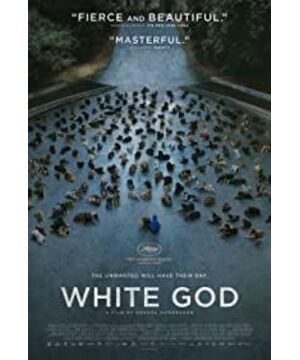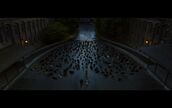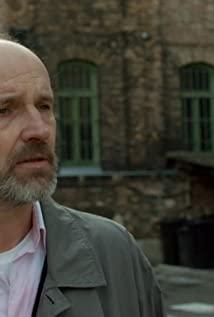Speaking of the title of this movie, it is completely borrowed from Fuller's classic masterpiece "White Dog", but DOG has become a GOD, sublimated from "dog stuff" to "god", just playing a word game. There are two clues to the story. One is how a rebellious little girl who loves a dog finds her dog. In the process, she has escaped from home and school, looking for maturity and self in alcohol and loud music, but she finally found out His father loves him the most. This main line is the traditional family ethics drama about teenagers and girls who have lost their youth. There is not much novelty, but the drama is conflicted enough, the narrative is clear and smooth, and the precious friendship between young people and pets is still praised and commemorated. And another clue is that the dog’s bloody experience was first discarded, then sold, ran away, driven, caught, and finally in a cage to be killed. Finally, it broke out and it used humans. In order to fight the dog with its canine teeth, lead a group of friends to kill one after another human beings who had despised them. The most exciting part of the film is that in the climax part, the camera keeps the level of the dogs. With the passionate "Hungarian Rhapsody", the 274 dogs used in the whole film rush to the camera together, which is enough to shock people.
The film won the Cannes "a kind of attention" award, in addition to this theme of interracial pacifism, the photography editing of the entire film is also wonderful enough. When shooting characters, most of the shots in this film are loyal to the documentary. The zoom is sudden and the camera shakes. Under this "Dougma 95" personal style, the swaying relationship of the characters can be reflected freely and freely. When it comes to shooting dogs, the whole film is mainly shot from the subjective perspective of dogs. Although this anthropomorphic technique is not used for the first time, the angle of "dogs see the world" still allows the audience to play an interesting role-play. . There are indeed some ambiguities in this film. The director hopes to add some political metaphors, but plots like "Students blowing the Internationale" can't deeply reflect the great political changes that have taken place in Hungary.
In the end, the violence of humans and animals was reduced to the little girl's trumpet. The dogs calmed down, and the humans also calmed down. A kind of peace and harmony finally brought the film to an end in the tranquility and poetry of pacifism. The hateful person must have pity, not only the dog who fights back after being abused by humans, but also the person who shows great love under the crisis. Different lives have the same goal.
View more about White God reviews











